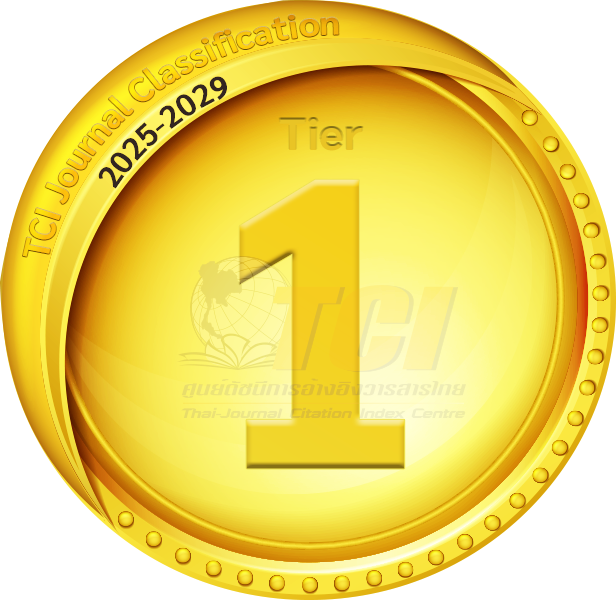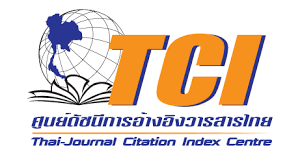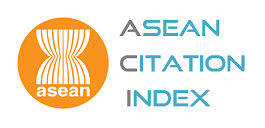“Will Life Be Difficult for Them?”: Thai Parents’/Caregivers’ Responses to the Disclosure of Their LGBTQI+ Children’s Gender/Sexual Identity
- Sakol Sopitarchasak, Faculty of Learning Sciences and Education, Thammasat University, Pathum Thani, Thailand, Corresponding author, Email: sakol@lsed.tu.ac.th
- Ronnapoom Samakkeekarom, Faculty of Public Health, Thammasat University, Pathum Thani, Thailand
Abstract
Studies worldwide have indicated that parents/caregivers of LGBTQI+ children experience difficulties understanding their children’s gender/sexual identity; this lack of comprehension leads to a lowered quality of life for the children. However, little is known about the experience of parents/caregivers of LGBTQI+ children in Thailand. To fill this knowledge gap and inform future interventions, this qualitative study explores how parents/caregivers of LGBTQI+ people in Thailand respond to and manage the stress of the circumstance. Twelve parents/caregivers (ages: 48–70) of eleven LGBTQI+ people in Thailand responded to a semi-structured, in-depth interview. The interview transcripts were analyzed with an inductive thematic analytical approach, and the results were further discussed under the family stress theoretical framework. Most parents/caregivers initially experienced difficulties in accepting their children’s gender/sexual identity and had concerns for their children’s future, but subsequently accepted or came to terms with the disclosure. The most common coping mechanism among the participants was rationalizations, which seemed to help them alter the meanings associated with having LGBTQI+ children or emphasize the absence of other stressful events. Family resources such as family cohesion and communication skill seemed to be critical regarding the parents’/caregivers’ positive responses. Relationships among families with LGBTQI+ children and their accessibility to relevant information seemed to strengthen family resources. Social interventions to normalize diverse genders/sexualities, eliminate discrimination, and reinforce family resources through general and context-specific approaches are recommended for supporting families with LGBTQI+ children.
Keywords: parents, caregivers, family stress, gender, sexual identity, LGBTQI+, Thai
DOI: 10.14456/jcsh.2023.2
References
Aramburu Alegría, C. (2018). Supporting families of transgender children/youth: Parents speak on their experiences, identity, and views. International Journal of Transgenderism, 19(2), 132-143. https://doi.org/10.1080/15532739.2018.1450798
Boss, P. (1992). Primacy of perception in family stress theory and measurement. Journal of Family Psychology, 6(2), 113-119. https://doi.org/10.1037/0893-3200.6.2.113
Boss, P., & Greenberg, J. (1984). Family boundary ambiguity: A new variable in family stress theory. Family Process, 23(4), 535-546. https://doi.org/10.1111/j.1545-5300.1984.00535.x
Broad, K. (2011). Coming out for Parents, Families and Friends of Lesbians and Gays: From support group grieving to love advocacy. Sexualities, 14(4), 399-415. https://doi.org/10.1177/1363460711406792
Chokrungvaranont, P., Selvaggi, G., Jindarak, S., Angspatt, A., Pungrasmi, P., Suwajo, P., & Tiewtranon, P. (2014). The development of sex reassignment surgery in Thailand: A social perspective. The Scientific World Journal, 2014, Article ID 182981. https://doi.org/10.1155/2014/182981
D’Augelli, A. R., Grossman, A. H., & Starks, M. T. (2005). Parents’ awareness of lesbian, gay, and bisexual youths’ sexual orientation. Journal of Marriage and Family, 67(2), 474–482. https://doi.org/10.1111/j.0022-2445.2005.00129.x
FFLAG. (2021). Who are FFLAG?. Retrieved July 20, 2022 https://www.fflag.org.uk/who-are-we/
Hale, A. E., Chertow, S. Y., Weng, Y., Tabuenca, A., & Aye, T. (2021). Perceptions of support among transgender and gender-expansive adolescents and their parents. Journal of Adolescent Health, 68(6), 1075-1081. https://doi.org/10.1016/j.jadohealth.2020.11.021
Hill, D. B., & Menvielle, E. (2009). ‘You Have to Give Them a Place Where They Feel Protected and Safe and Loved’: The views of parents who have gender-variant children and adolescents. Journal of LGBT Youth, 6(2–3), 243–271. https://doi.org/10.1080/19361650903013527
Hill, R. (1949). Families under stress: Adjustment to the crises of war separation and reunion. New York, UK: Harper & Brothers.
Johnson, D., Sikorski, J., Savage, T. A., & Woitaszewski, S. A. (2014). Parents of youth who identify as transgender: An exploratory study. School Psychology Forum, 8(1), 56-74.
Juntrasook, A., Ojanen, T., & Sopitarchasak, S. (2021). yòo rûuam sùk rêuuang lâo kwaam săm-pan kŏng kon glâi chít LGBTI+ [To Live Happily Together: stories of people who are close to LGBTI+ people] T. Kiatwateerattana (Ed.). Faculty of Learning Science and Education, Thammasat University.
Klein, D. A., Ahmed, A. E., Murphy, M. A., Pearlman, A. T., Johnson, N., Gray, J. C., & Schvey, N. A. (2022). The mediating role of family acceptance and conflict on suicidality among sexual and gender minority youth. Archives of Suicide Research, 1–8. https://doi.org/10.1080/13811118.2022.2075815
Lavee, Y., McCubbin, H. I., & Patterson, J. M. (1985). The double ABCX model of family stress and adaptation: An empirical test by analysis of structural equations with latent variables. Journal of Marriage and the Family, 47(4), 811–825. https://doi.org/10.2307/352326
McConnell, E. A., Birkett, M. A., & Mustanski, B. (2015). Typologies of social support and associations with mental health outcomes among LGBT youth. LGBT Health, 2(1), 55–61. https://doi.org/10.1089/lgbt.2014.0051
McConnell, E. A., Birkett, M. A., & Mustanski, B. (2016). Families matter: Social support and mental health trajectories among lesbian, gay, bisexual, and transgender youth. Journal of Adolescent Health, 59(6), 674–680. https://doi.org/10.1016/j.jadohealth.2016.07.026
McCubbin, H. I., Joy, C. B., Cauble, A. E., Comeau, J. K., Patterson, J. M., & Needle, R. H. (1980). Family stress and coping: A decade review. Journal of Marriage and the Family, 42(4), 855–871. https://doi.org/10.2307/351829
Newcomb, M. E., Heinz, A. J., Birkett, M., & Mustanski, B. (2014). A longitudinal examination of risk and protective factors for cigarette smoking among lesbian, gay, bisexual, and transgender youth. Journal of Adolescent Health, 54(5), 558–564. https://doi.org/10.1016/j.jadohealth.2013.10.208
Newcomb, M. E., Heinz, A. J., & Mustanski, B. (2012). Examining risk and protective factors for alcohol use in lesbian, gay, bisexual, and transgender youth: A longitudinal multilevel analysis. Journal of Studies on Alcohol and Drugs, 73(5), 783–793. https://doi.org/10.15288/jsad.2012.73.783
Newman, P. A., Prabhu, S. M., Akkakanjanasupar, P., & Tepjan, S. (2022). HIV and mental health among young people in low-resource contexts in Southeast Asia: A qualitative investigation. Global Public Health, 17(7), 1200–1214. https://doi.org/10.1080/17441692.2021.1924822
Newman, P. A., Reid, L., Tepjan, S., & Akkakanjanasupar, P. (2021). LGBT+ inclusion and human rights in Thailand: A scoping review of the literature. BMC Public Health, 21(1), 1816. https://doi.org/10.1186/s12889-021-11798-2
Ojanen, T. T., Newman, P. A., Ratanashevorn, R., de Lind van Wijngaarden, J. W., & Tepjan, S. (2020). Whose paradise? An intersectional perspective on mental health and gender/sexual diversity in Thailand. In LGBTQ mental health: International perspectives and experiences (pp. 137–151). Washington, D.C, UK: American Psychological Association. https://doi.org/10.1037/0000159-010
Padilla, Y. C., Crisp, C., & Rew, D. L. (2010). Parental acceptance and illegal drug use among gay, lesbian, and bisexual adolescents: Results from a national survey. Social Work, 55(3), 265–275. https://doi.org/10.1093/sw/55.3.265
Parker, C. M., Hirsch, J. S., Philbin, M. M., & Parker, R. G. (2018). The urgent need for research and interventions to address family-based stigma and discrimination against lesbian, gay, bisexual, transgender, and queer youth. Journal of Adolescent Health, 63(4), 383–393. https://doi.org/10.1016/j.jadohealth.2018.05.018
Patterson, J. M. (1988). Families experiencing stress: I. The family adjustment and adaptation response model: II. Applying the FAAR Model to health-related issues for intervention and research. Family Systems Medicine, 6(2), 202–237. https://doi.org/10.1037/h0089739
PFLAG. (2022). International PFLAG/family organizations. Retrieved July 20, 2022. form https://pflag.org/intlfamilygroups
Porche, M. V., & Purvin, D. M. (2008). ‘Never in Our Lifetime’: Legal marriage for same-sex couples in long-term relationships. Family Relations, 57(2), 144–159. https://doi.org/10.1111/j.1741-3729.2008.00490.x
Potiwan, P., & Tongyu, D. M. (2010). The marginalization process of the transgender. Khon Kaen University Journal, 10(1), 66–77. https://doi.org/10.5481/KKUJGS.2010.10.1.9
Puckett, J. A., Matsuno, E., Dyar, C., Mustanski, B., & Newcomb, M. E. (2019). Mental health and resilience in transgender individuals: What type of support makes a difference?. Journal of Family Psychology, 33(8), 954–964. https://doi.org/10.1037/fam0000561
Pullen Sansfaçon, A., Kirichenko, V., Holmes, C., Feder, S., Lawson, M. L., Ghosh, S., ... & Suerich-Gulick, F. (2020). Parents’ journeys to acceptance and support of gender-diverse and trans children and youth. Journal of Family Issues, 41(8), 1214–1236. https://doi.org/10.1177/0192513X19888779
Pullen Sansfaçon, A., Robichaud, M.-J., & Dumais-Michaud, A.-A. (2015). The experience of parents who support their children’s gender variance. Journal of LGBT Youth, 12(1), 39–63. https://doi.org/10.1080/19361653.2014.935555
Reczek, C., & Umberson, D. (2012). Gender, health behavior, and intimate relationships: Lesbian, gay, and straight contexts. Social Science and Medicine, 74(11), 1783–1790. https://doi.org/10.1016/j.socscimed.2011.11.011
Reid, L., Newman, P. A., Lau, H., Tepjan, S., & Akkakanjanasupar, P. (2022). A scoping review of LGBT + inclusion in Thailand: Policy proposals and recommendations. Sexuality Research and Social Policy, 19(4), 1731–1746. https://doi.org/10.1007/s13178-022-00751-6
Ryan, C., Huebner, D., Diaz, R. M., & Sanchez, J. (2009). Family rejection as a predictor of negative health outcomes in white and latino lesbian, gay, and bisexual young adults. Pediatrics, 123(1), 346–352. https://doi.org/10.1542/peds.2007-3524
Ryan, C., Russell, S. T., Huebner, D., Diaz, R., & Sanchez, J. (2010). Family acceptance in adolescence and the health of LGBT young adults. Journal of Child and Adolescent Psychiatric Nursing, 23(4), 205–213. https://doi.org/10.1111/j.1744-6171.2010.00246.x
Saltzburg, S. (2009). Parents’ experience of feeling socially supported as adolescents come out as lesbian and gay: A phenomenological study. Journal of Family Social Work, 12(4), 340–358. https://doi.org/10.1080/10522150903261932
Samakkeekarom, R., Thongchalaem, A., & Prapavadee, O. (2021). bâan née mee kwaam làak lăai · kôo meu gaan doo lae sùk paa-wá kŏng yao-wá-chon têe mee kwaam làak lăai taang pêt [There is diversity in our home: a manual for taking care of gender-diverse youth’s well-being]. Foundation of Transgender Alliance for Human Rights.
Savin-Williams, R. C., & Dubé, E. M. (1998). Parental reactions to their child’s disclosure of a gay/lesbian identity. Family Relations, 47(1), 7–13. https://doi.org/10.2307/584845
Simons, L., Schrager, S. M., Clark, L. F., Belzer, M., & Olson, J. (2013). Parental support and mental health among transgender adolescents. Journal of Adolescent Health, 53(6), 791–793. https://doi.org/10.1016/j.jadohealth.2013.07.019
Sopitarchasak, S., Kihara, M., Soe, K. M., & Ono-Kihara, M. (2017). Disparities in mental well-being between non-minority and sexual minority male youth in Bangkok, Thailand: Quantitative findings from a mixed method study. Journal of Population and Social Studies, 25(2), 83–98. https://doi.org/10.25133/JPSSv25n2.001
Sopitarchasak, S., Samakkeekarom, R., Techasrivichien, T., Suguimoto, S. P., Tharawan, K., Kihara, M., & Ono-Kihara, M. (2015). Victimization against non-heterosexual male adolescents in bangkok: A qualitative study. Social Sciences Asia, 1(4), 61–76.
Suttichainimit, A., & Tuicomepee, A. (2016). Psychological experiences of family members following the outness of persons with homosexual orientation. Academic Psychiatry and Psychology Journal, 32(3), 14-27.
The Foundation of Transgender Alliance for Human Rights. (2015). naew bpà-dtì-bàt săm-ràp krôp kruua têe mee lôok lăan bpen gà-toiie [Guidelines for Families with Katoey Children]. Women’s Health Publishing Advocacy Foundation.
United Nations Development Program (UNPD), & United States Agency for International Development (USAID). (2014). Being LGBT in Asia: Thailand country report. Retrived form https://www.refworld.org/pdfid/54ed82784.pdf
Weber, J. G. (2011). The ABCX formula and the double ABCX model. Individual and family stress and crises, 82-96.
Wei, W., & Yan, Y. (2021). Rainbow parents and the familial model of tongzhi (LGBT) activism in contemporary China. Chinese Sociological Review, 53(5), 451–472. https://doi.org/10.1080/21620555.2021.1981129
Willoughby, B. L., Doty, N. D., & Malik, N. M. (2008). Parental reactions to their child's sexual orientation disclosure: A family stress perspective. Parenting: Science and practice, 8(1), 70-91. https://doi.org/10.1080/15295190701830680
Willoughby, B. L. B., Malik, N. M., & Lindahl, K. M. (2006). Parental reactions to their sons’ sexual orientation disclosures: The roles of family cohesion, adaptability, and parenting style. Psychology of Men and Masculinity, 7(1), 14–26. https://doi.org/10.1037/1524-9220.7.1.14
World Bank Group. (2018). Economic inclusion of LGBTI groups in Thailand. World Bank. Retrived from https://www.worldbank.org/en/country/thailand/publication/economic-inclusion-of-lgbti-groups-in-thailand
Yadegarfard, M., Meinhold-Bergmann, M. E., & Ho, R. (2014). Family rejection, social isolation, and loneliness as predictors of negative health outcomes (depression, suicidal ideation, and sexual risk behavior) among Thai male-to-female transgender adolescents. Journal of LGBT Youth, 11(4), 347–363. https://doi.org/10.1080/19361653.2014.910483

Indexed in


Search